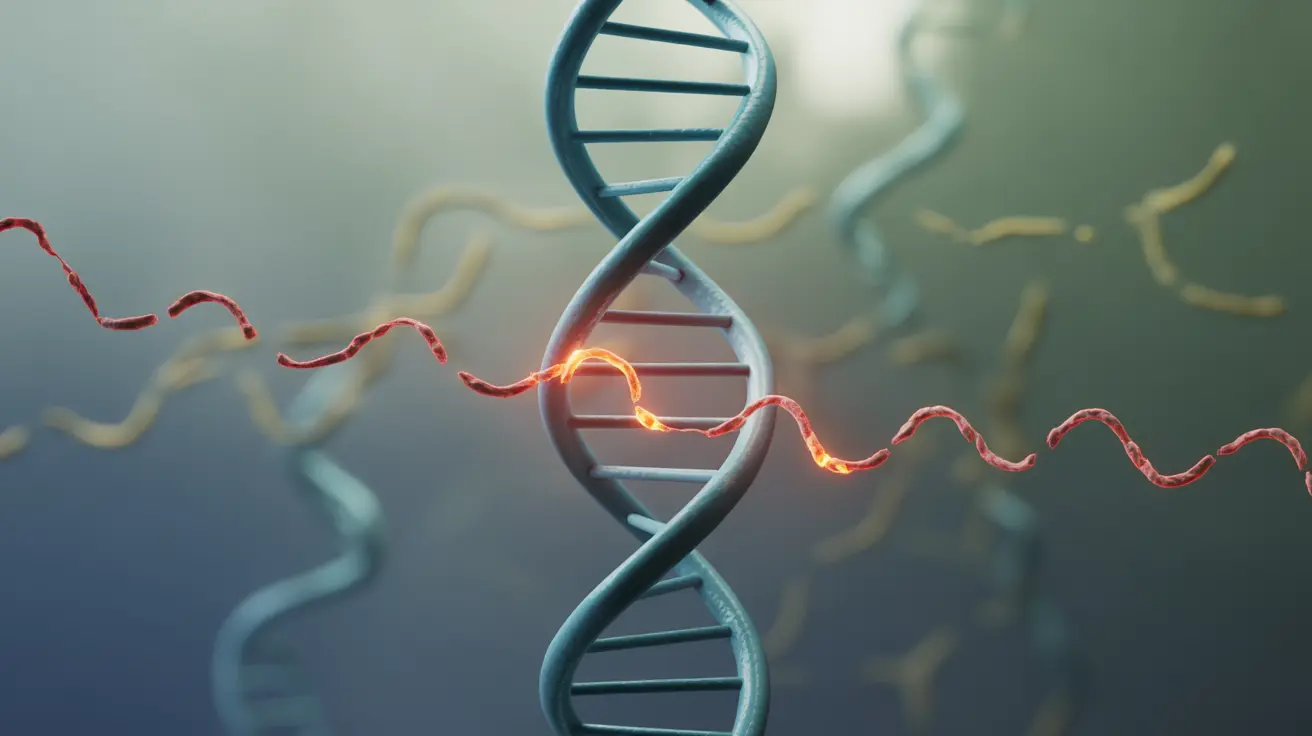Non-Hodgkin's lymphoma (NHL) is a complex blood cancer that affects the lymphatic system, raising important questions about its genetic components. While not typically considered a purely hereditary disease, understanding the genetic factors that may influence its development is crucial for both patients and their families.
Recent research has shed light on the intricate relationship between genetics, environmental factors, and the development of NHL. This comprehensive guide explores the role of heredity in non-Hodgkin's lymphoma and helps you understand your potential risk factors.
Genetic Factors in Non-Hodgkin's Lymphoma
While non-Hodgkin's lymphoma isn't directly inherited in most cases, certain genetic factors can influence its development. Scientists have identified several genetic mutations that may increase susceptibility to NHL, though these mutations typically occur during a person's lifetime rather than being inherited from parents.
Common Genetic Mutations
Several key genetic mutations have been associated with different types of NHL. These include changes in genes that control:
- B-cell development and function
- Cell growth and division
- Programmed cell death (apoptosis)
- DNA repair mechanisms
These mutations usually develop over time and are often influenced by environmental factors, aging, or other external triggers rather than inheritance.
Family History and Risk Assessment
Having a close relative with NHL may slightly increase your risk of developing the condition. However, this increased risk is generally modest and doesn't necessarily mean you will develop the disease. Many other factors play significant roles in determining overall risk.
Risk Factors Beyond Genetics
Several non-genetic factors can significantly influence NHL development:
- Age (most common in people over 60)
- Immune system disorders
- Exposure to certain chemicals
- Previous radiation therapy
- Viral and bacterial infections
Inherited Conditions and NHL Risk
Some rare inherited conditions can increase the risk of developing non-Hodgkin's lymphoma. These genetic disorders often affect the immune system or DNA repair mechanisms, making individuals more susceptible to developing various types of cancer, including NHL.
Known Inherited Conditions
Several specific inherited conditions are associated with increased NHL risk:
- Primary immunodeficiency syndromes
- DNA repair deficiency syndromes
- Certain autoimmune conditions
- Inherited immune system disorders
Environmental and Immune System Influences
The development of NHL often results from a complex interaction between genetic predisposition and environmental factors. Understanding this relationship is crucial for assessing individual risk and developing prevention strategies.
Frequently Asked Questions
Is non-Hodgkin's lymphoma inherited or caused by genetic factors? While NHL isn't typically directly inherited, genetic factors can play a role in its development. Most cases result from genetic mutations that occur during a person's lifetime rather than inherited mutations.
Does having a family member with non-Hodgkin's lymphoma increase my risk of developing it? Having a close relative with NHL may slightly increase your risk, but the increase is generally modest. Many other factors contribute to the development of NHL.
What genetic mutations are associated with different types of non-Hodgkin's lymphoma? Various genetic mutations affecting cell growth, death, and immune system function are associated with NHL. These typically develop over time rather than being inherited.
Are there rare inherited conditions that can raise the risk of non-Hodgkin's lymphoma? Yes, certain rare inherited conditions, particularly those affecting the immune system or DNA repair mechanisms, can increase NHL risk. These include primary immunodeficiency syndromes and DNA repair deficiency disorders.
How do environmental and immune system factors influence the development of non-Hodgkin's lymphoma compared to genetics? Environmental and immune system factors often play a more significant role than genetics in NHL development. These factors can trigger genetic mutations and interact with existing genetic predispositions to influence disease development.




